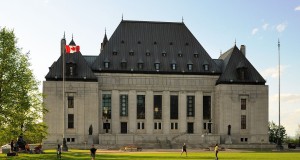Tuesday’s Ontario Court of Appeal decision in R. v. Goebel properly disposed of a claim that raised an important issue, but was deeply flawed from a legal perspective. Justice Epstein’s reasons helpfully noted that s. 7 of the Charter does not include property rights, and an infringement of the right to “security of the person” requires a real connection to a specific law.
The Case
Goebel involved an accused who suffers from a serious mental disability. As a result of complaints made by his neighbours, the City of Toronto, pursuant to the Building Code Act, ordered the accused to do various things related to the upkeep of his property. He failed to comply, leading to his being charged for various matters under the Provincial Offences Act in the Ontario Court of Justice. By way of defence, the accused asserted that the Building Code Act (though seemingly not any particular provision thereof) violated ss. 2(b), 7 and 15 of the Charter. His primary argument was based on s. 7.
The accused commenced an application in the Superior Court of Justice to obtain funding for counsel to assist in his constitutional challenge in the Ontario Court of Justice (Ontario’s provincial court).
Applications such as this pit competing social interests against each other. On the one hand, courts should generally not be usurping the legislature’s role in deciding who can obtain publicly funded counsel, and in what circumstances. At the same time, the legislature has a peculiar interest in defending constitutional claims. Moreover, if a meritorious constitutional claim cannot proceed due to a litigant’s inability to afford counsel, the rule of law will suffer as the constitutionality of government action will remain unresolved.
To balance these competing interests, the Supreme Court held in British Columbia v. Okanagan Indian Band that a court may exercise its inherent power to order interim costs to a party if three criteria are met:
- The party seeking interim costs genuinely cannot afford to pay for the litigation, and no other realistic option exists for bringing the issues to trial. In short, the litigation would be unable to proceed if the order were not made;
- The claim to be adjudicated is prima facie meritorious; that is, the claim is at least of sufficient merit that it is contrary to the interests of justice for the opportunity to pursue the case to be forfeited just because the litigant lacks financial means; and
- The issues raised transcend the individual interests of the particular litigant, are of public importance, and have not been resolved in previous cases.
Even if these criteria are met, there is no right to be awarded interim costs. Moreover, while a superior court has the power to award interim costs of a proceeding in a provincial court, the Supreme Court has held in R. v. Caron that it is only to be exercised in “highly exceptional [circumstances] and made only where the absence of public funding would work a serious injustice to the public interest”.
The Reasons
Though she did not conclusively decide the issue, Justice Epstein, for a unanimous Court of Appeal, seemed willing to accept that the accused could not otherwise afford to pay for the litigation and the litigation accordingly would not proceed if an order were not made. Moreover, though the Court of Appeal did not address this matter, the public importance of the issues, and their lack of likelihood of being determined otherwise, did not seem in doubt.
However, the accused’s claim was certain to fail on the merits and, as a result, the accused was denied the relief he was seeking.
The accused asserted that the impugned legislation deprived him of his shelter, and thereby infringed his security of the person, protected under s. 7 of the Charter. This appeared to be attempting to read a right to property into the Charter when such right is not present. The absence of property rights from the Charter is clear from the context and nature of s. 7.
In any event, the accused misunderstood and misinterpreted the nature of the Building Code Act. The Building Code Act did not permit the City of Toronto to deprive the accused of his shelter. The Act merely enacted a regime to ensure that properties are maintained, as is clearly necessary in a city such as Toronto. Though failure to comply with an order can result in a fine or imprisonment, this can only occur after a hearing in the Ontario Court of Justice. The penalties imposed under this regime were minimal, and certainly did not deprive the accused of his shelter (which, to repeat, is not a Charter-protected interest in any event). Though failure to pay a fine could result in additional property taxes owing, and failure to pay property taxes could ultimately lead to forced sale of property, that was a remote possibility incredibly far removed from the impugned legislation.
As the accused’s claim was clearly without merit, he was properly denied costs to fund it.
Concluding Thoughts
Goebel marks the second time in the past six months where the Ontario Court of Appeal employed the Rules of Civil Procedure to dispose a claim certain to fail in an efficient manner. I have already discussed how motions to strike, like summary judgment motions, should be used to dispose of cases that clearly have no merit in a summary manner. While my praise of the Court of Appeal in Tanudjaja was qualified, the decision in Goebel is clearly the right result for the right reasons.
*Gerard Kennedy practices commercial and constitutional litigation at Osler, Hoskin & Harcourt LLP. He is also an adjunct professor at the University of Toronto, where he teaches international law
 Advocates for the Rule of Law
Advocates for the Rule of Law



